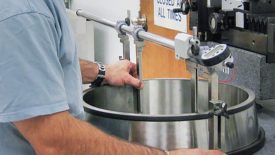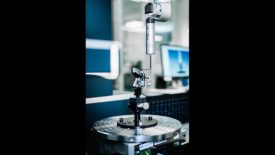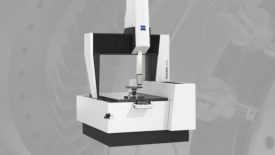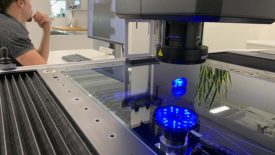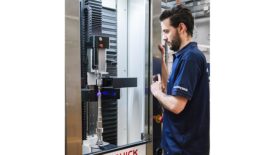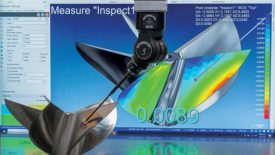Measurement
Diameter Measurement
How to Measure Big IDs and ODs
As with any diameter measurement, there are several possible solutions.
June 7, 2023
Medical
Best Practices for Validating CMM-based Inspection Processes
What does a thorough validation approach really entail?
June 1, 2023
High- Speed Measurement
Precision at All Altitudes: High-speed Measuring of Aerospace Parts with Shopfloor CMMs
Quality assurance performed at the site of production can identify and possibly even avoid manufacturing errors.
May 16, 2023
Measurement
How to Measure the Intricate Components of Electrical Connectors
Quality assurance is critical for manufacturing electrical connectors.
March 30, 2023
Measurement
Selecting The Right Solution For Shaft Inspection
Shaft measurement can be accomplished in many different ways, according to the needs of the manufacturing process.
March 3, 2023
NDT | Force Testing
Measuring Force Data in Extreme Conditions
Manufacturers want more data in the product development process to create better products, and they need solutions that can perform in any condition.
February 15, 2023
Measurement
The Elephant in the Room, or the Impact of Measurement Uncertainty on Risk
We cannot simply ignore the risk associated with a measurement by ignoring its associated uncertainty of measurement.
February 2, 2023
Software & Analysis
Choosing the Right Measurement and Inspection Software
January 5, 2023
The Spending Forecast is Here
The 22nd Annual Quality Spending Survey Results
Concerns about Covid-19 are down, but inflation worries are up.
December 29, 2022
Stay in the know with Quality’s comprehensive coverage of
the manufacturing and metrology industries.
eNewsletter | Website | eMagazine
JOIN TODAY!Copyright ©2024. All Rights Reserved BNP Media.
Design, CMS, Hosting & Web Development :: ePublishing

